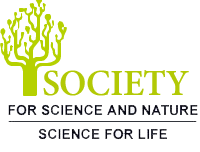Retractions/ Corrections / Withdrawal
Authors submitting their work to Biosc.Biotech.Res.Comm. must carefully ensure that their submitted articles follow standard conventions of scientific reporting, originality of the work, explicit and correct English language used with regard to best writing practices. All factual statements must be supported by cited sources or research evidence. Authors must ensure the accuracy of citations, quotations, diagrams, tables, and maps. Despite the mandate of clear instructions on the journals website, Biosc.Biotech.Res.Comm. will consider retractions, corrections or expressions of concern in line with COPE’s Retraction Guidelines, if an author is found to have made a justifiable error, the journal will issue a corrigendum. If the journal is found to have made an error, we will issue an erratum.
Retractions are usually reserved for articles that are seriously flawed that their findings or conclusions should not be relied upon, or that contain substantial plagiarism or life-endangering content. Biosc.Biotech.Res.Comm. that publishes accepted manuscripts, may make minor changes such as those which would likely occur during copyediting, typesetting or proofreading, but any substantive corrections will be carried out in line with COPE’s Retraction Guidelines.
Accepted articles in final stages of publication, if are withdrawn, will entail withdrawal fees. The request will be processed by the editorial board and only serious genuine reasons will be considered for retraction if possible. The decision of the editorial board will be final and not negotiable. Unethical withdrawal or no response from the authors to editorial board communication will be subjected to sanction a ban to all authors, and their institute will also be notified.
Infringements of professional ethical codes, such as multiple submission, bogus claims of authorship, plagiarism, fraudulent use of data or the like. Occasionally a retraction will be used to correct errors in submission or publication.The retraction of an article by its authors or the editor under the advice of members of the scholarly community has long been an occasional feature of the learned world.Standards for dealing with retractions have been developed by a number of library and scholarly bodies, and this best practice is adopted for article retraction by us.
A retraction note titled “Retraction: [article title]” signed by the authors and/or the editor is published in the paginated part of a subsequent issue of the journal and listed in the contents list.In the electronic version, a link is made to the original article.The online article is preceded by a screen containing the retraction note. It is to this screen that the link resolves; the reader can then proceed to the article itself. The original article is retained unchanged save for a watermark on the .pdf indicating on each page that it is “retracted.”The HTML version of the document is removed.
